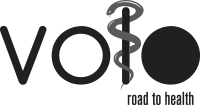
Check-Up
Check-up is a general evaluation of the health status of healthy individuals and early diagnosis of a possible disease that has not yet led to a complaint. Having a check-up means taking care of one's self and health. Early diagnosis of some diseases and especially cancer is extremely important. Therefore, early diagnosis of such diseases increases the success of treatment as a result of check-up scans. Early awareness and early treatment in every area of medicine and in every disease will increase the life comfort of the person and increase the life expectancy. Tests required for a standard check-up check; blood counts, blood tests evaluating organ functions (liver, kidney, etc.), sedimentation, cholesterol and lipid levels, thyroid (goiter) test, hepatitis (jaundice) test, complete urinalysis, whole abdominal ultrasonography, chest radiography, electrocardiography and stool test.
In addition to the tests that should be performed by all people over the age of 40, it is recommended that they carry out additional examinations for eye examinations, cardiological examinations and cancer screening, whether or not having familial risk. Those who have a family risk should not wait for the age of 40 to take these tests. Those in the risk group should undertake additional tests related to the risks they carry from the age of 30 years.
Another aim of check-up is to determine the risk of age, sex, smoking, possible disease risks occurring especially women's hormonal periods (such as fertility-menopause) familial diabetes, coronary artery disease, stroke and cancer. Additional check-up examinations for those at risk of coronary artery disease in the family; HDL cholesterol, LDL cholesterol, effort test and echocardiography. Women who have a family history of cancer should take PAP smear test, breast ultrasonography, mammography, pulmonary function tests and lung computer tomography once a year. Men with a family history of cancer should also undergo prostate-specific antigen, pulmonary function test and lung computed tomography once a year.
" It is extremely important for each healthy individual to have a check-up once a year."
Pay attention to yourself, check-up and identify potential health problems in advance.
In addition to the tests that should be performed by all people over the age of 40, it is recommended that they carry out additional examinations for eye examinations, cardiological examinations and cancer screening, whether or not having familial risk. Those who have a family risk should not wait for the age of 40 to take these tests. Those in the risk group should undertake additional tests related to the risks they carry from the age of 30 years.
Another aim of check-up is to determine the risk of age, sex, smoking, possible disease risks occurring especially women's hormonal periods (such as fertility-menopause) familial diabetes, coronary artery disease, stroke and cancer. Additional check-up examinations for those at risk of coronary artery disease in the family; HDL cholesterol, LDL cholesterol, effort test and echocardiography. Women who have a family history of cancer should take PAP smear test, breast ultrasonography, mammography, pulmonary function tests and lung computer tomography once a year. Men with a family history of cancer should also undergo prostate-specific antigen, pulmonary function test and lung computed tomography once a year.
" It is extremely important for each healthy individual to have a check-up once a year."
Pay attention to yourself, check-up and identify potential health problems in advance.
Share




